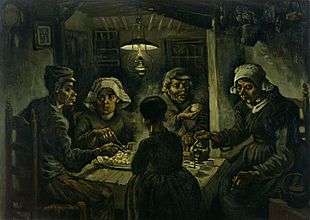The Class Struggle in the Ancient Greek World
 Cover of the first edition | |
| Author | G. E. M. de Ste. Croix |
|---|---|
| Country | United Kingdom |
| Language | English |
| Subject | Ancient Greece |
| Published | 1981 (Cornell University Press) |
| Media type | Print (Hardcover and Paperback) |
| Pages | 732 (1989 edition) |
| ISBN |
0-8014-1442-3 (hardcover) 0-8014-9597-0 (paperback) |
| LC Class | 81-66650 |

The Class Struggle in the Ancient Greek World from the Archaic Age to the Arab Conquests is a 1981 book by the British classical historian G. E. M. de Ste. Croix, a fellow of New College, Oxford. The book became a classic of Marxist historiography.
Summary
De Ste. Croix, a fellow of New College, Oxford, makes a wide-ranging attempt to establish the validity of historical materialist analysis of the ancient world, among other historical periods. De Ste. Croix begins with the attempt to define exactly what terms such as "class", "exploitation", "surplus" and "mode of production" mean, in the sense they were used by Karl Marx. In his interpretation of Marxism, he acknowledges a debt to Gerald Cohen's Karl Marx's Theory of History: A Defence (1978) and Leszek Kołakowski's Main Currents of Marxism (1976).[1]
Addressing diverse historical periods, De Ste. Croix covers questions as varied as the emergence of democracy in Ancient Athens and the social importance of the decline of the Greek city-state during the Roman Empire. In defending the viability of 'class struggle' as an analytical framework applicable to the ancient world, De Ste. Croix claims that Marx's conceptions are remarkably close to Aristotle's political philosophy and Thucydides' historiography. He cites numerous fourth and fifth-century BC sources to argue that Greek writers themselves (including Plato) saw political tendencies rooted ultimately in economic interests.
There is also lengthy discussion of the significance of the mode by which surplus value is generated. De Ste. Croix argues that a mode of surplus extraction, a concept devised by Marx, is significant and is not necessarily the same as the mode of production engaged in by the majority of a population.
Scholarly reception
The Class Struggle in the Ancient Greek World has received much scholarly attention: more, according to Paul Cartledge, than almost any other work of ancient history since George Grote and Theodore Mommsen.[2] It was soon seen as a classic of Marxist historiography,[3] credited with bringing the Classical world back to holding a key position in Marxist history.[4] The work was praised by Mark Golden for showing how a Marxist analysis can help explain the historical process.[5]
The work was criticised by Yvon Garland for involving a fundamentalist reading of Marx, though Paul Cartledge disagreed with this analysis, praising Ste. Croix for his avoiding dogmatically following Marx.[6] Other critics have noted that the book failed to address the position of metics in ancient Greek society,[7] and have queried Ste. Croix's characterisation of women as a separate class in the ancient world. Perry Anderson, for instance, argued that reproduction is not a form of production in the Marxist sense, and so Ste. Croix's contention that women counted as a separate class was inaccurate.[8]
References
- ↑ De Ste. Croix, G. E. M. The Class Struggle in the Ancient Greek World from the Archaic Age to the Arab Conquests. Cornell University Press, 1989, p. xi.
- ↑ Cartledge, Paul (1984). "Review of The Class Struggle in the Ancient Greek World by G.E.M. de Ste. Croix". The English Historical Review. 99: 566.
- ↑ Golden, Mark (1984). "A Marxist Classic". Labour/Le Travail. 14.
- ↑ Anderson, Perry (1983). "Class Struggle in the Ancient World". History Workshop. 16: 58.
- ↑ Golden, Mark (1984). "A Marxist Classic". Labour/Le Travail. 14: 213–214.
- ↑ Cartledge, Paul (1984). "Review of The Class Struggle in the Ancient Greek World by G.E.M. de Ste. Croix". The English Historical Review. 99: 567.
- ↑ Golden, Mark (1984). "A Marxist Classic". Labour/Le Travail. 14: 212.
- ↑ Anderson, Perry (1983). "Class Struggle in the Ancient World". History Workshop. 16: 65.
External links
- "G.E.M. de Ste Croix: A lifelong empathy with the oppressed". International Committee of the Fourth International. 21 March 2000. Retrieved 6 October 2016.
- "An exchange on G. E. M de Ste. Croix, historian of Ancient Greek society". International Committee of the Fourth International. 8 April 2000. Retrieved 6 October 2016.